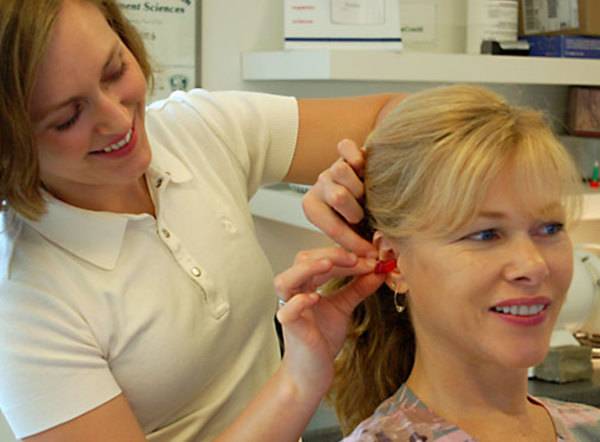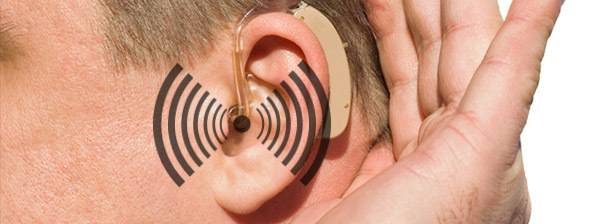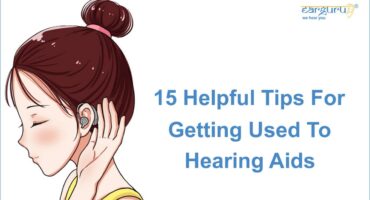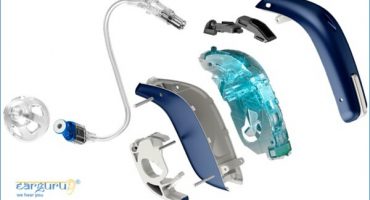It is a known fact that loud sounds cause hearing loss. For a normal ear, continuous exposure to loud sounds can cause hearing loss over a period. It is highly recommended that we use ear protection devices to protect our ears from loud sounds.
Follow the simple Ear Health tips to prevent Noise-induced Hearing loss. Hearing aids amplify sound and make them loud. So can Hearing aids cause Hearing loss? This is a frequent question and needs an answer. Let us also find out how and why this question came up.
Table of Contents
- What is Normal Hearing?
- When do We Need Hearing Aids?
- How do Hearing Aids Help?
- Can A Hearing Aid Damage Your Hearing?
- Can Hearing Aids Improve Hearing?
- Will My Hearing Loss Get Worse If I Don’t Use Hearing Aids?
- Can Hearing Aid Cause Hearing Loss?
- When Can Hearing Aids Cause Hearing Loss?
What is Normal Hearing?
A person with normal hearing can hear all types of sound and take part in a conversation. Normal conversation is at a sound level of 50 to 60 decibels. If one is occasionally missing out on a few words, the person may be suffering from hearing loss. Most of the people suffer from High frequency Hearing loss. The main reason is old age closely followed by damage to the ear from loud sound.
Before we discuss whether Hearing aids damage our hearing or not, let us find out why we need hearing aids?
When do We Need Hearing Aids?
Hearing aids are useful if our hearing loss is permanent. In some cases the Conductive hearing loss is curable, unless the damage to the outer ear or the middle ear is permanent.
Sensorineural hearing Loss is not curable. Research in the regeneration of Hair cells is at an advanced stage. A cure will be available shortly. Hearing aids or Cochlear Implant is the only solution to overcome the Hearing loss.
How Do Hearing Aids Help?
Hearing aids amplify the sound and compensate for the hearing loss. The selection of Hearing aids depends on the degree of Hearing loss.
Suppose I have a 60 dB hearing loss, this is my hearing threshold. In this case, I will not hear any sound which is below the 60 dB level. As normal conversations are between 50 and 60 dB, I will miss most of the conversation.
In my case, the Audiologist will prescribe or fit a Hearing aid which suits my hearing loss. My Hearing aid will amplify sounds which are very soft. The Hearing aid will not amplify sounds which are above the 60 dB level as my ears can hear at this level.
Can A Hearing Aid Damage Your Hearing?
Hearing aids perform as per accepted standards. ANSI and IEC are accepted global standards. The features in the hearing aid control the output, gain, compression and other parameters which do not subject the user to excessive sound. So how did the question of a hearing aid damaging your hearing arise?
The human brain is smarter than any known computer and adapts itself to the changing scenario or the changing lifestyle of the person. If I have a loss of 50 dB my brain will adapt to this level of hearing loss and will consider it as normal hearing. Now if I start using a hearing aid, after a few days it will adapt itself to the hearing aid amplified output sound and consider the new sound as normal.
One fine day my hearing aids stop working and I send them to the company for repairs, all of a sudden I am without any amplification device but my ears are used to the amplified output from the hearing aids. I realize that I cannot hear anything or much worse than what I used to hear before I decided to use hearing aids. My immediate reaction is that hearing aids have damaged my ears.
The real truth is that I have not given enough time to my brain to adjust and adapt to the new condition of zero amplification. That is why people think that hearing aids damage your hearing.
Can Hearing Aids Improve Hearing?

Hearing aids cannot prevent hearing loss but they can certainly improve the hearing ability. Hearing loss increases very gradually unless it’s a case of sudden Hearing loss. Our brain gets accustomed to the hearing loss and considers this as normal. This reduces the sound processing ability of the brain as well as the nerves and other parts.
Once the Hearing aids start working, the brain and the complete aural network get new signals. This increases the efficiency of the aural network as they start processing new sound signals.
Will My Hearing Loss Get Worse If I Don’t Use Hearing Aids?
The chances of Hearing loss advancing or getting worse is more in people who do not use Hearing aids. We should exercise all body parts, right from the brain to the muscles. Body parts do not slow down and remain healthy if kept active.
Can Hearing Aid Cause Hearing Loss?
Hearing aids cannot damage your hearing or make the hearing loss worse. This is a totally false perception. In fact, use of Hearing aids can slow down your Hearing loss and increase alertness and mental faculties. There are certain rare conditions when Hearing aids can do harm.
When Can Hearing Aids Cause Hearing Loss?
There are 4 situations when Hearing aids can cause damage.
- Poor Hearing Aid Programming or Tuning.
Digital Hearing aids can be precisely programmed as per the users Hearing loss. If the programming is proper, the hearing aid will amplify sounds only in the region where the user has hearing loss.
For example, a person has hearing loss in the high-frequency region and has little or no hearing loss in the low frequency. The Audiologist will program to increase the high-frequency amplification. Minimum or no amplification is set in the low-frequency region.
If the programming is not done properly and more amplification is provided in the region of normal hearing, this would cause extreme discomfort and can also cause damage to the ear.
- Bad Hearing Aid Fitting

More than poor programming, bad fitting is the reason for damage to the ear. Majority of the users reject hearing aids due to poor fitting or programming.
A bad fit is due to the loose ear mould or use of wrong size of the ear tips. If the mould or the ear tip is not fitted properly, the Hearing aid will start whistling loudly. This is a feedback loop. The whistle is so loud that the users will not hear anything and it can also damage the hearing.
- Poor Counselling
Counselling the user before fitting and after fitting will make all the difference between a happy and an unhappy user. In most cases, there is an initial reluctance to use Hearing aids. The reluctance comes for various reasons. Some of the reasons are covered in the article 5 helpful tips to convince your parents to use Hearing aids.
One of the reasons is listening discomfort. During the Hearing loss, the brain processes limited sound signals coming from the ear. After the Hearing aid fitting, the Brain processes new signals or new information. Sudden exposure to all sounds will make the user uncomfortable. The Brain takes a little time to adapt to the new situation.
This is similar to wearing a new set of spectacles. Initially, the ground looks uneven.
Proper counselling will help the Hearing aid user face all these issues. New users should not take advice from unqualified people.
- Using Non-Standard Sound Amplification Devices
A Hearing aid is a medical product. Manufacturers design and produce Hearing aids as per the guidelines laid down by various medical and engineering organisations. These guidelines specify the maximum permissible distortion, power consumption, output power and other parameters to ensure that the user gets a quality product.
Many small-time unscrupulous manufacturers market cheap sound amplification devices which look similar to Hearing aids. The manufacturers of these devices tempt the first time users by offering low prices. Buyers are advised to check the credentials of the company before buying.
Use of Hearing aids can be a life-changing experience. Do not hesitate to wear your Hearing aids and also advice others suffering from Hearing loss.



